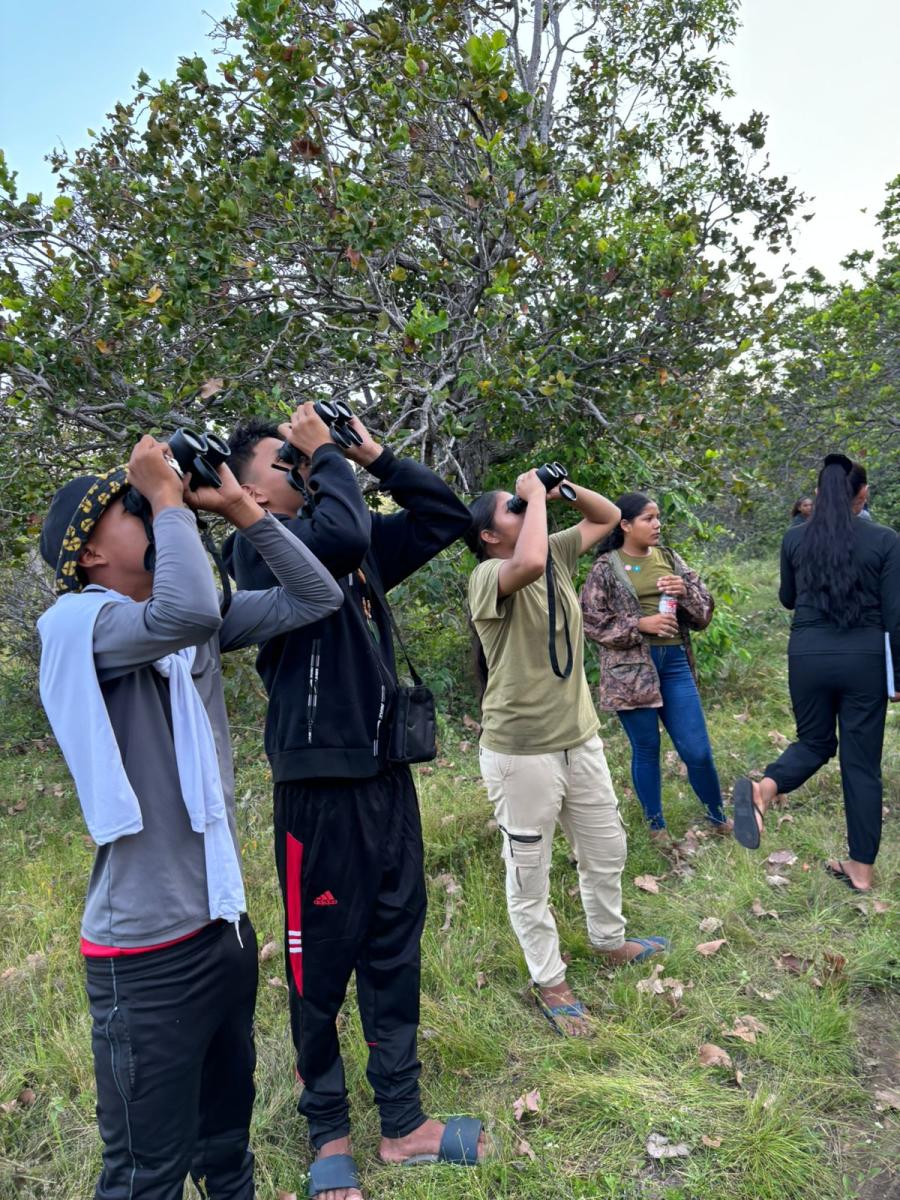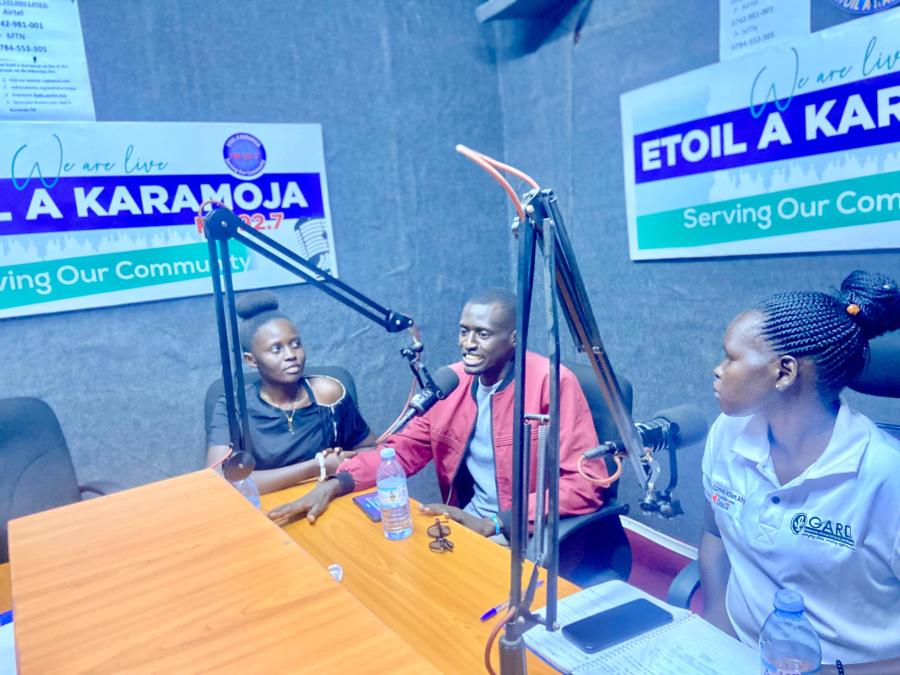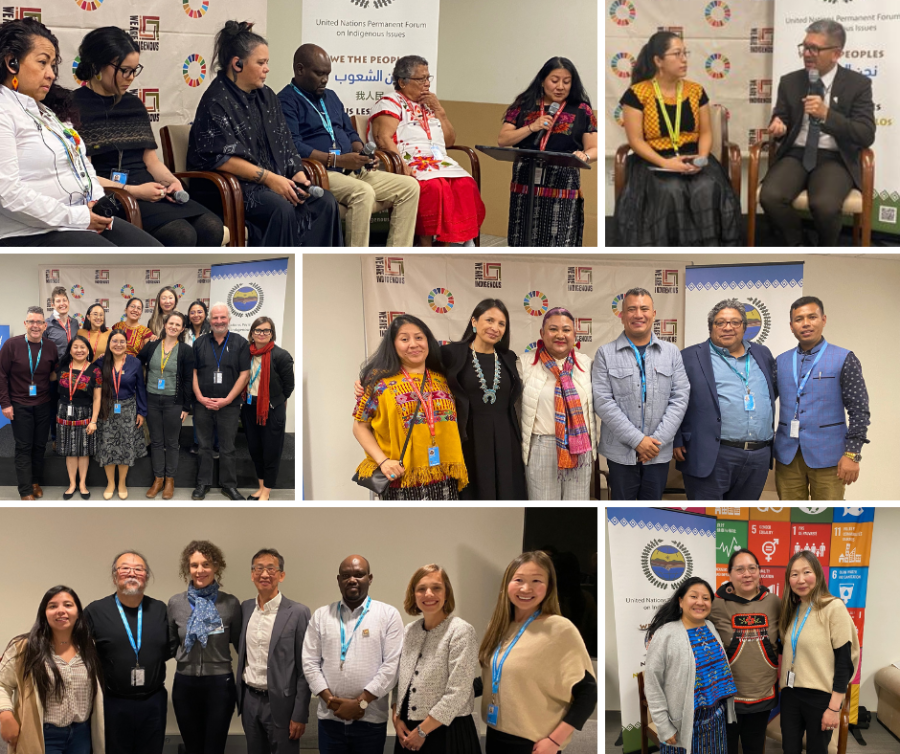
The Keepers of the Earth Fund (KOEF) is proud to announce that in 2023 we awarded over half a million dollars in small grants to support Indigenous projects on issues related to community empowerment for land defense and autonomy; the transmission of Indigenous knowledge; traditional medicine and Indigenous spirituality; food sovereignty and Indigenous economies; and the various forms of resistance to mining for the energy transition.
In total, 72 Indigenous projects and collectives were financed for a total amount of $543,605. The funds were sent directly to Indigenous communities, collectives, and grassroots organizations in 21 countries.
At Cultural Survival, we value cultivating long-term relationships with our partners. Therefore, we awarded 22 grants to organizations that had received grants in prior years, representing one-third of this year's total. Following our programmatic priority of supporting Indigenous women and youth, 16 organizations led by Indigenous women and 9 projects either led by or directly supporting Indigenous youth were financed.
The Keepers of the Earth Fund is an Indigenous-led fund at Cultural Survival designed to support Indigenous Peoples' advocacy and community development projects globally. Since 2017, we have supported 310 projects in 41 countries through small grants and wrap-around support totaling $1,603,307. Grants go directly to Indigenous communities, collectives, organizations, and traditional governments to support projects designed by them and in accordance with their Indigenous values. Predicated on the United Nations Declaration on the Rights of Indigenous Peoples, Cultural Survival uses a rights-based approach in our grantmaking strategies to support grassroots Indigenous solutions through the equitable distribution of resources to Indigenous communities.
Meet our grant partners working to secure food sovereignty and strengthen Indigenous economies.
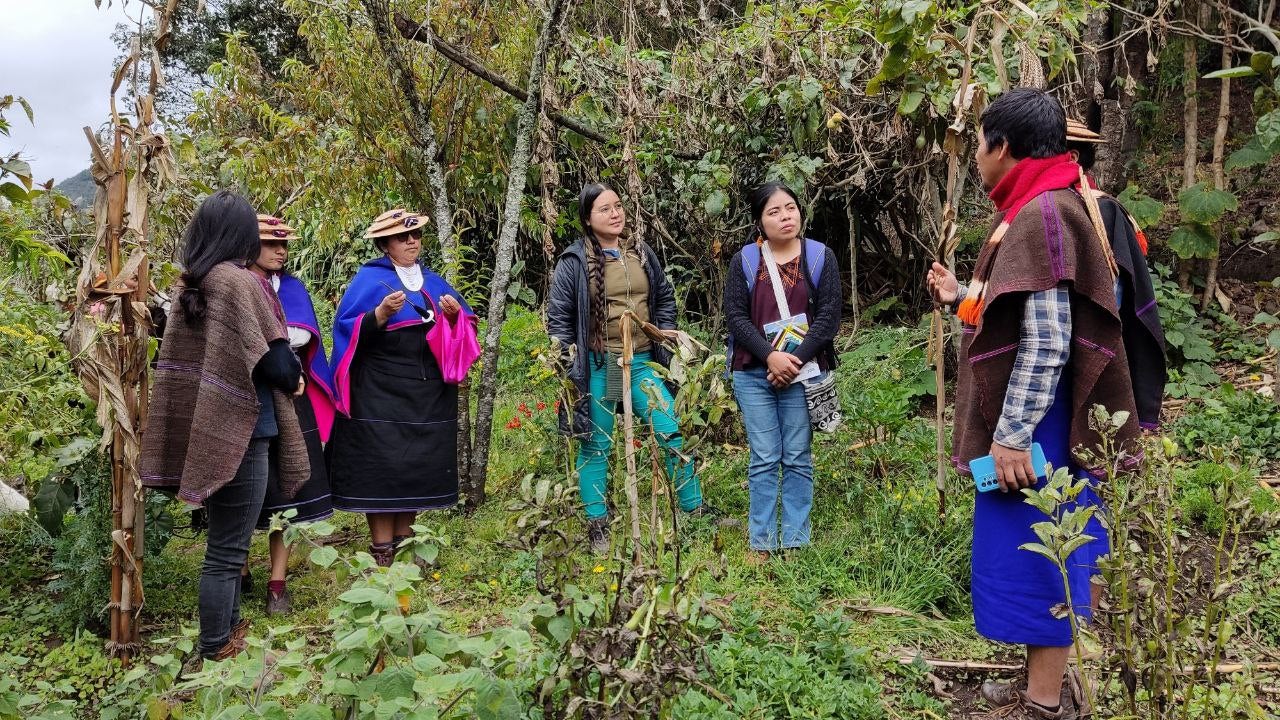
Las Delicias Botanical Garden Association - (Misak), Colombia
Las Delicias Botanical Garden Association was founded in 1999 by a group of families from the Guambia Indigenous reserve in the department of Cauca. Faced with environmental problems and the lack of a land policy that prioritizes community decision making, they created the first high altitude botanical garden. This year, with the support of the Keepers of the Earth Fund, the team will strengthen the garden's research processes around food sovereignty and Misak artisan expressions. Work will be conducted in traditional orchards, an herbarium, and during family mingas (gatherings).
Much' Kanan I'inaj Seed Collective - (Maya), Mexico
Semillas Much' Kanan I'inaj is a collective made up of campesinos and Maya people from the municipality of Bacalar in the state of Quintana Roo. Since 2002, they have been working to save native seeds and promote the milpa system. Native seeds contain the memory of the people and guarantee food autonomy, and the advance of agribusiness in the territory and the increasing use of genetically modified seeds represents a serious risk of cross contamination. Their project, supported by a KOEF grant, focuses on the production of native seeds with technical training at ch'il (live seed banks). In addition, community spaces will be organized with a focus on defending the territory and food autonomy, along with a community meeting for the protection of the seeds.
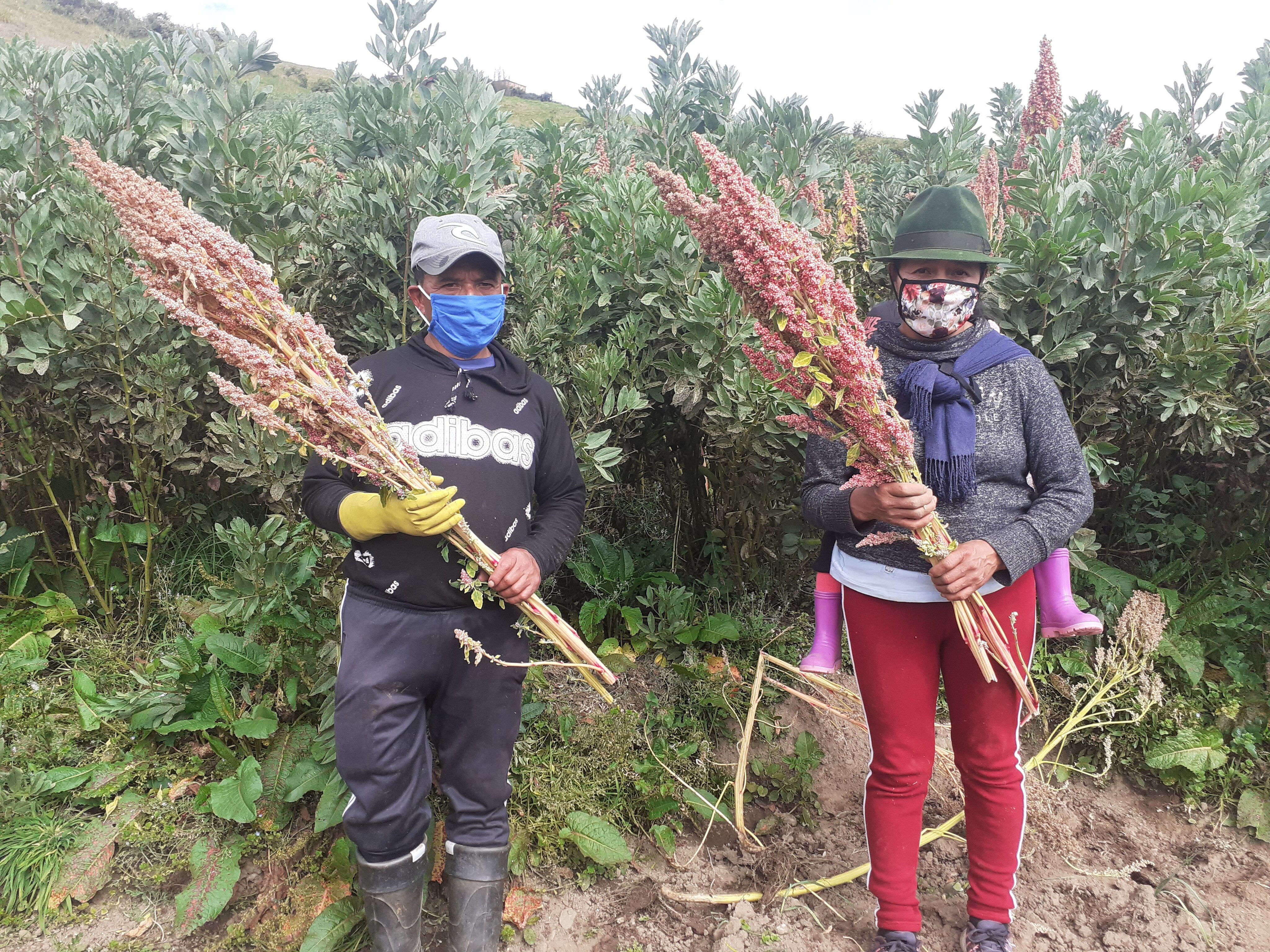
Association of Producers of Seeds and Andean Nutritional Foods Mushuk Yuyay - (Cañari), Ecuador
The Mushuk Yuyay Association is made up of producers from Cañar, El Tambo, Suscal, and Biblian in the province of Cañar. The Association has 50 active members and an additional 70 producers dedicated to the production of tubers and grains. For two decades, the Cañari community has faced threats from monoculture and cattle ranching, which have affected local biodiversity and native seeds. With the support of a KOEF grant, the association is organizing the Muyu Festival according to the agricultural calendar to promote Cañari food culture, knowledge, community organization, leadership, and artistic expression.
Camentsa Shnan Wabuatmeng Indigenous Association - (Kamëntšá), Colombia
Camentsa Shnan Wabuatmeng is an Indigenous organization run by specialized healers known as sobanderas, along with traditional doctors, medical students, and trainees. Their territory is threatened by the expansion of monocultures and the overuse of chemicals that contaminate the water and the environment and are negatively impacting local agriculture and food systems. In response, the Association is working to promote the participation of children, youth, and adults in different mingas (gatherings) where knowledge, seeds, and food are shared. The mingas will focus on three areas: work, to prepare traditional recipes and exchange knowledge about nutrition; thought, to share the experiences of local families; and cultural training, to promote the mother tongue, work in the jajañ (garden), and the art of weaving.
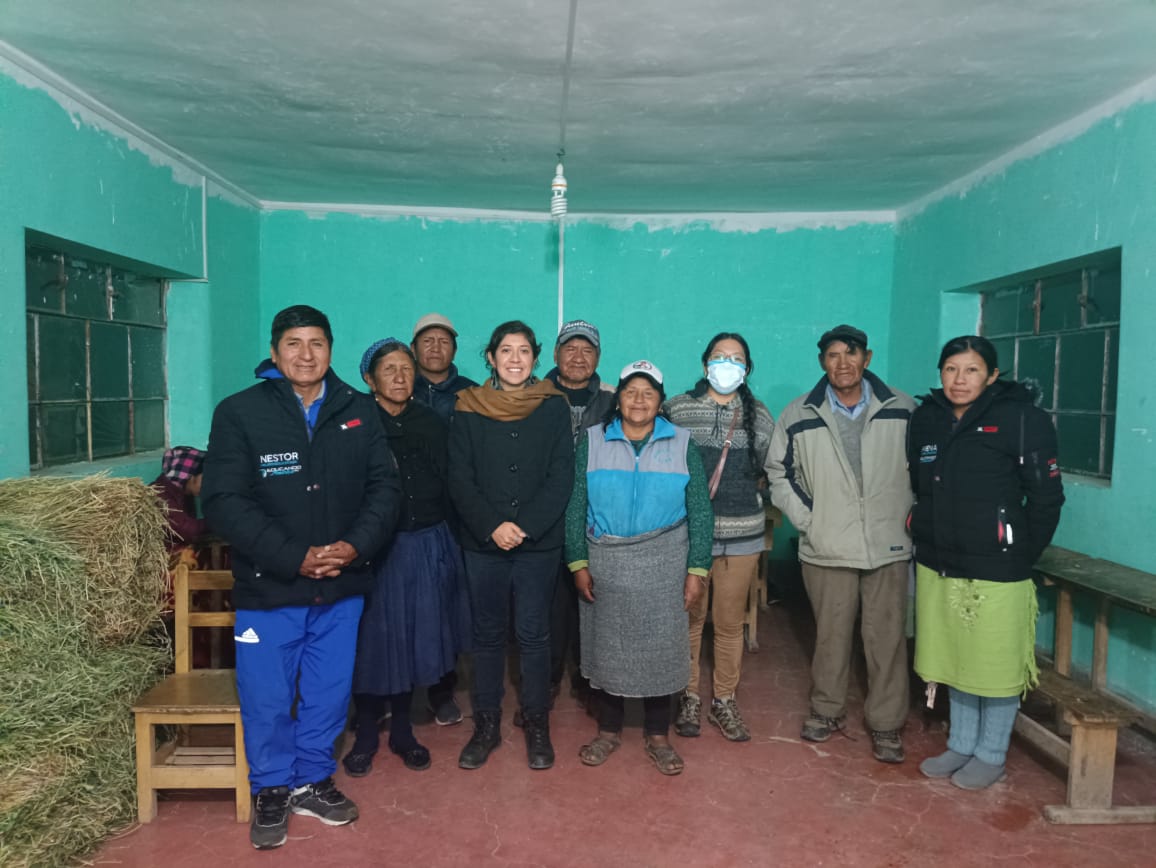
Mañica Indigenous Community - (Quechua), Bolivia
The Mañica community is located in Potosí, Nor Lípez province, on the shores of Salar de Uyuni, the world’s largest salt flat. Faced with shortages of water and food, community members are developing a project to capture water and install irrigation networks in their greenhouse, where they grow vegetables free of agrochemicals for consumption by the community. Through these actions, they seek to promote food and economic sovereignty of their community.
Organization Xch'ool Ixqilal/Heart of a Woman - (Q'echi'), Guatemala
The Xch'ool Ixqilal organization was formed to engage in community development, strengthen food sovereignty, and boost the family economy through the work of women. This year, women are being trained in the processing and preparation of flour and food. A meeting of women and farmers is also being organized to exchange knowledge about planting tubers and other local species, which will promote the sale of local produce in the local market and contribute to feeding the community.
Collective Milpa KM50 - (Maya), Mexico
The Milpa Colectiva is made up of 23 Maya people from the José María Morelos community in Quintana Roo. Government programs promoting genetically modified seeds, fertilizers, and pesticides have resulted in a loss of diversity of native maize and less planting of milpas. This problem is accentuated by the increase in migrants seeking employment outside of the community and the lack of hands to cultivate the fields. Following several years of recovering knowledge on traditional milpa cultivation, with the support of a KOEF grant, the collective will hold the first Native Seed Festival to promote the exchange of native seeds and campesino knowledge about stewardship of the land, both of which are essential to maintaining their food sovereignty and autonomy as Maya Peoples.
U Yits Ka'an Ecological Agriculture School of Maní - (Maya), Mexico
U Yits Ka'an was founded in 1995 by a network of campesinos from different towns in the south and east regions of Yucatan. This year, they are working to involve their youth network in reading, observing, and interpreting the xook k'íin (traditional weather forecasting techniques). They will document the work via video and audio and will organize meetings with milperos (milpa producers) to promote the exchange of experiences of agricultural techniques. The objective is to pass on Indigenous knowledge and maintain the food autonomy of the Maya communities as an act of community resilience in the face of climate change.
Caño Guama Community of Alto Sipapo - (Uwuottuja), Venezuela
The inhabitants of the Caño Guama community have created an association to improve the productivity of their lands in balance with the environment and to improve the socioeconomic conditions of their community. This region has a long tradition of growing cocoa and other native species as an alternative to the more recent monoculture of plantains and tubers. In 2023, with the support of the Keepers of the Earth Fund, they are conducting training workshops to improve their food production and other activities to support local growers.
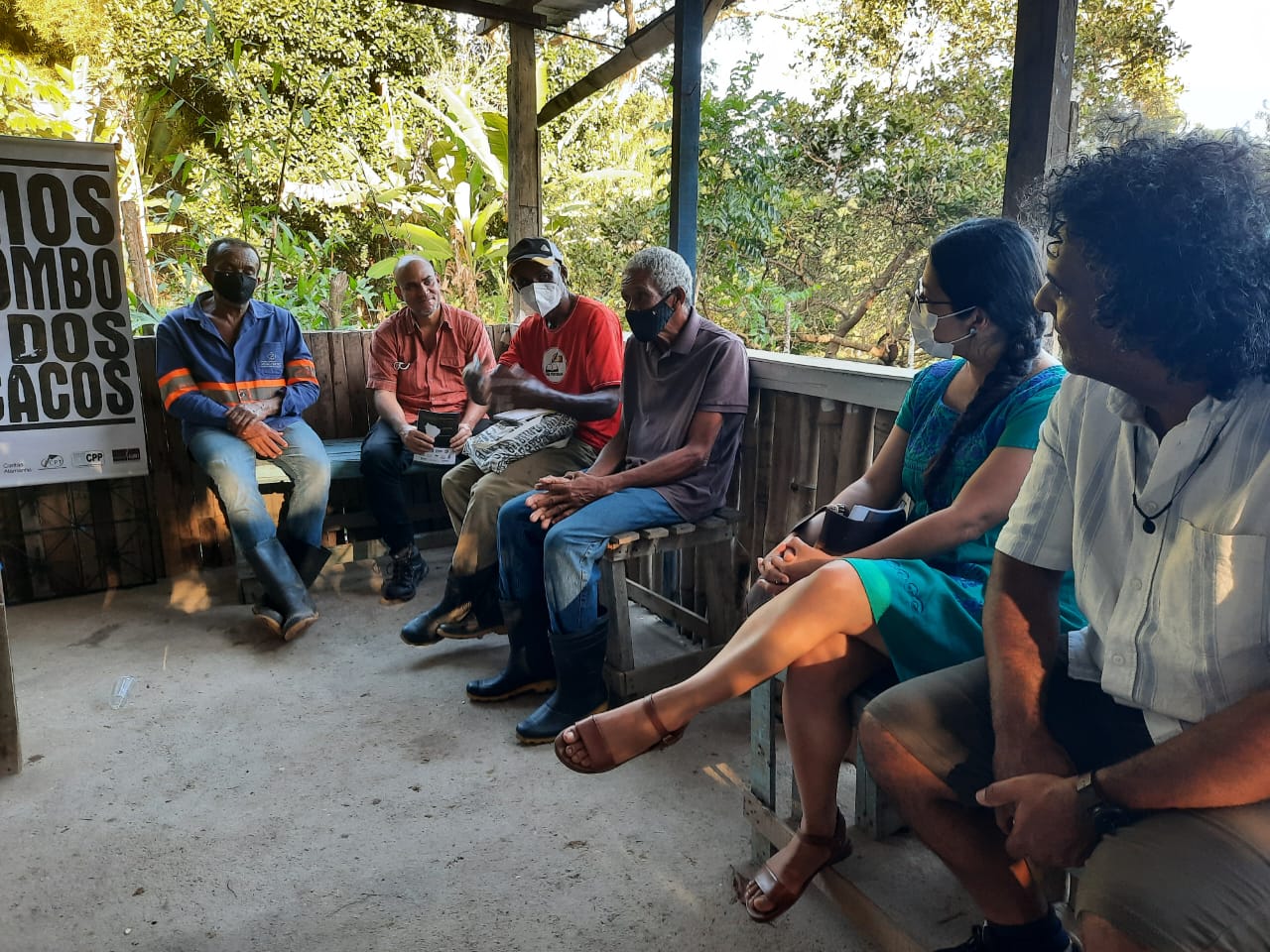
Quilombo Rio dos Macacos Resistance Association - (Quilombola), Brazil
The Quilombola People in Simões Filho, Bahia, have been plagued by constant violence since 1960 when the Brazilian government started massacring and torturing community members and seized their territories with the use of military force. As part of the community's reconstruction work, the Association has created a cassava flour production space, which is helping to improve the community's food security and economic sovereignty.
Organization of Indigenous Women Weaving Memories and Alli Biayëng Association - (Kamentsa, Inga), Colombia
The Organization of Indigenous Women Weaving Memories and Alli Biayëng Association promote the transmission of Indigenous knowledge and languages, defense of territory, collective rights, and environmental stewardship. With the support of KOEF, they will engage collectively in cultivating chagra (farmland) and weaving as spaces for intergenerational mingas (gatherings). Their project is being implemented by the Kamëntsá Inga Council of San Francisco, Putumayo, Colombia.
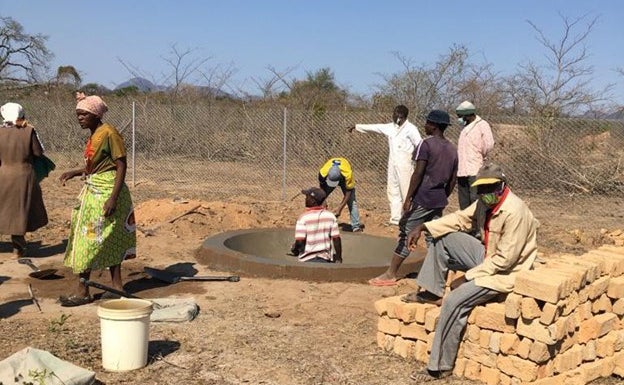
Zienzele Foundation - (Shona), Zimbabwe
Cyclical drought has caused distress and hardship for the Shona population of Mupagamuri, Chikofa, Chamatutu, Mawadze, and Mudzai villages in Zimbabwe, who have no access to wells when their rivers run dry. The Zienzele Foundation, in continuation of a previous project, started work on three borehole wells to serve the community’s drinking water and irrigation needs at the local community center. The wells will contribute to Shona food security by ensuring that crops remain irrigated during the dry season.
